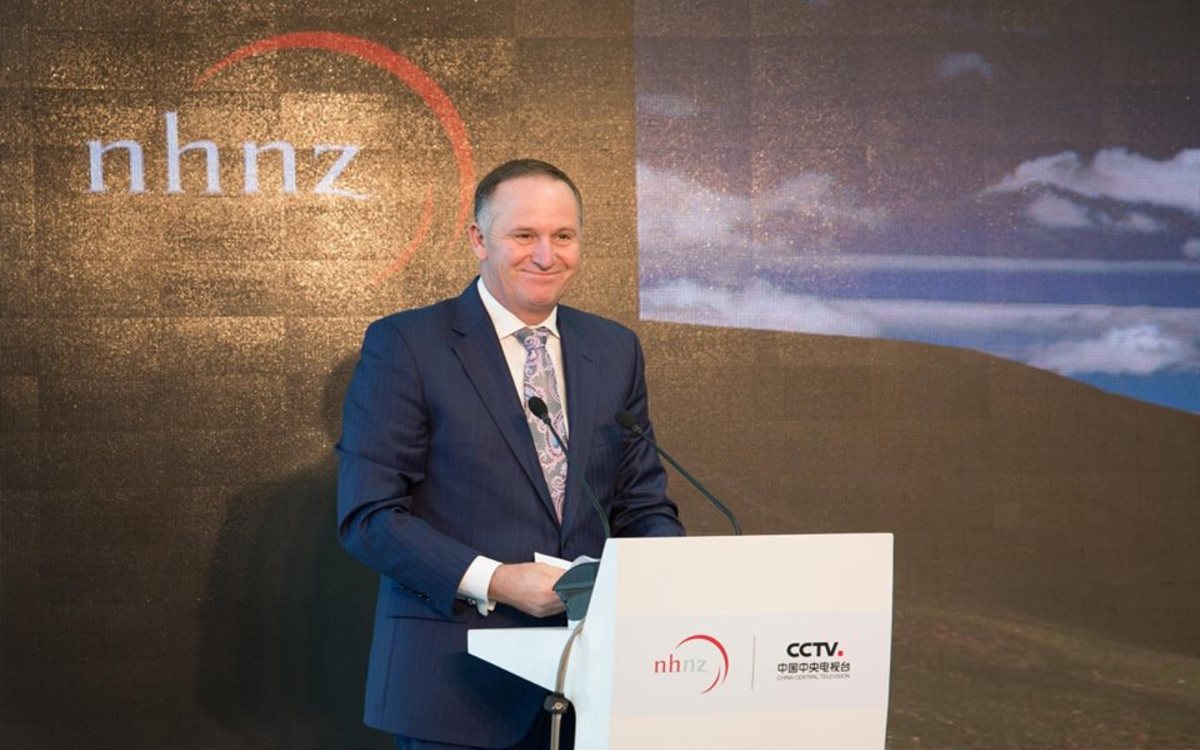- New Zealand film and television punching above its weight but looking to China for growth
- Prime Minsiter John Key advocated for television industry with China Central Television
- PM Key said New Zealand might help CCTV get its content out to the world marketplace

New Zealand Prime Minister John Key in Beijing (Courtesy NHNZ Facebook)
For a country of only 4.5 million people, New Zealand punches above its weight in filmed entertainment. After big-budget Hollywood blockbusters The Lord Of The Rings and The Hobbit put the small nation on the global movie map, the country is now hoping China’s huge market for content will help further propel its own nascent industry forward.
Not only was New Zealand the first developed country to ink a free-trade agreement with China, it also is among the select few nations to clinch co-production treaties in film (2010) and a television (2014). Also, just a month after the two countries finally green lit their first official film co-production — the 3D animated family feature film Beast of Burden, New Zealand has followed it up with a string of television co-productions in the form of cartoons and wildlife documentaries.
“While some people may think of New Zealand’s as the land of milk and honey, we are much more than that” New Zealand’s Prime Minister John Key said at a media event in Beijing on Monday. “New Zealand’s creative sector is obvious evidence of that, and it’s starting to make waves internationally and in China.”
On his sixth official visit to China, Prime Minister Key advocated for his nation’s entertainment industry, lending gravitas to small New Zealand production companies scrambling to get ahead in a hierarchy-obsessed market by helping to open doors and grease a few wheels.
This time around, Key lent a hand to “factual television production house” Natural History New Zealand (NHNZ), which was signing new co-production agreements with state-run broadcaster China Central Television (CCTV) that would allow it to co-produce five more projects officially.
In addition to creating content for CCTV, NHNZ also creates it for National Geographic Channels, PBS, Animal Planet, Discovery and Japan’s NHK. But according to NHNZ Chief Executive David Haslingden “deep relationships in China” are the most important these days.
“CCTV is after all a government organization and I think it’s obvious that it resonates for a group like CCTV if you have the very public and strong endorsement of your own head-of-state,” Haslingden, who has worked at NHNZ for over 15 years, told China Film Insider.
Haslingden said that director Peter Jackson’s The Lord Of The Rings and The Hobbit had proven a boon to New Zealand tourism and that film and television are, in turn, increasingly important job creators.
NHNZ Managing Director Kyle Murdoch said that pairing CCTV, the world’s largest public broadcaster with his “tiny” production company “might seem like an odd-couple relationship” but that the key to their newly expanded 10-year partnership lay always in the nature of the content.
When the two countries signed their television co-production treaty during Chinese President Xi Jinping’s visit to New Zealand in 2014, it allowed NHNZ and CCTV to collaborate on a wider range of content including wildlife programs, historical documentaries, and animated series for children.
The first season of ZooMoo Animal Friends, an NHNZ show aimed at preschoolers, premiered to a record breaking 252 million viewers in March. The weekly half-hour show is now entering its second season for the China market.
The first co-production between NHNZ and CCTV Animation has the working title Panda and Kiwi, about which Prime Minister Key said he was particularly excited.
Another project, called How the Silk Road Changed the World—a series about how an ancient trade route gave rise to modern commerce—is set to be co-produced by NHNZ and CCTV10.
“Those are subjects that are very broad in their appeal and obviously they’re not generally controversial in subject matter,” Haslingden told CFI.
Haslingden said NHNZ now has active relationships through factual co-production agreements with CCTV 10, CCTV 9, and CCTV Kids. “These agreement cement CCTV as our most important co-production partner in the world.”
The next step, Haslingden said, was NHNZ possibly helping CCTV to get its own content out into the global marketplace.
“I think a lot of the programming that CCTV has produced is absolutely world-class quality and yet it hasn’t managed to be distributed outside China,” he said. “Our relationship with CCTV which thus far has really been just as a co-producer could evolve and become more expansive and more beneficial for both of just over time.”





